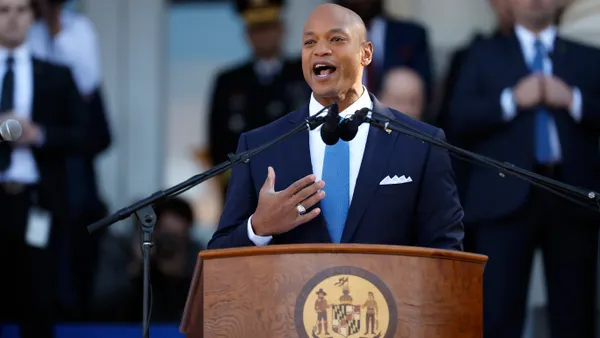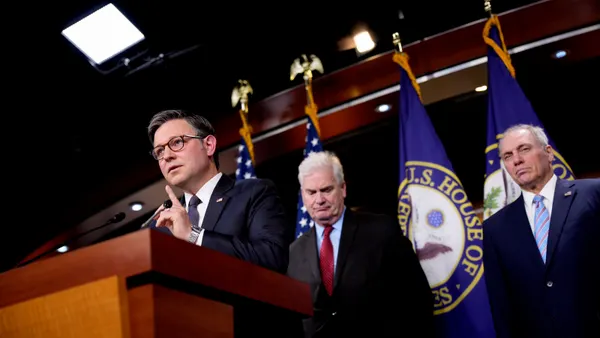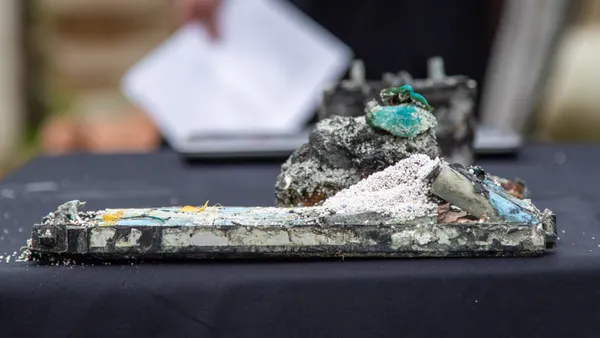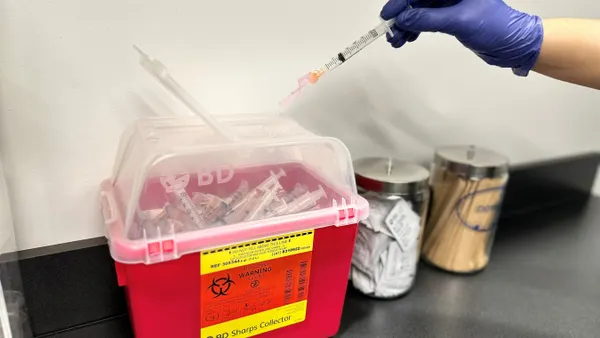Dive Brief:
- Two right-to-repair bills for consumer electronics and powered wheelchairs are headed to Washington Gov. Bob Ferguson’s desk for signature.
- HB 1483 would establish a right-to-repair law for consumer electronics, including laptops, cellphones and home appliances. If signed, Washington would be the sixth state to adopt such a law.
- SB 5680 creates a right-to-repair program for powered wheelchairs and other mobility devices. If signed, Washington will become the third state with such programs for these wheelchairs, following laws in Colorado and California.
Dive Insight:
Support for right-to-repair legislation has grown in recent years, with key laws passing recently in California, Colorado, Minnesota, New York and Oregon. Such laws have a range of requirements, but most call for original equipment manufacturers to make parts and repair instructions available to the general public.
Right-to-repair has also been an important issue for recyclers who see it as a tactic for diverting e-scrap from disposal and bringing in new business for e-scrap recyclers and refurbishers. Such diversion could also reduce fires caused by lithium-ion batteries that are thrown into the waste stream, a major safety concern for the industry.
Such bills have garnered support from major tech companies such as Google and Microsoft, as well as local disability advocacy groups and local waste authorities. Yet some electronics trade groups have said right-to-repair laws could create digital security issues and safety concerns for people who don’t know how to properly repair their equipment.
Ferguson has 20 days to sign the two bills into law once they are delivered to his desk.
Washington’s consumer equipment bill, the Right to Repair Act, calls for manufacturers to provide wider access to parts, tools and information used to fix electronic devices. Some manufacturers restrict repair tools and information to specific service centers they authorize.
The law would go into effect on Jan. 1, 2026, and cover most electronic products and parts that were manufactured, sold or used in Washington on or after July 1, 2021.
The bill “is about fairness, affordability, and putting power back into the hands of everyday Washingtonians,” state Rep. Mia Gregerson, chief sponsor of HB 1483, said in a statement. “Whether it’s a smartphone or a household device, people deserve access to the tools, parts and information needed to repair devices they’ve already paid for.”
The bill also restricts parts pairing, a practice of using software that prevents technicians from fully installing spare parts, particularly those that aren’t officially approved by OEMs. Two other states, Colorado and Oregon, prohibit manufacturers from using parts pairing. The parts pairing restriction would apply to electronics first manufactured, sold or used in the state after Jan. 1, 2026, according to the bill.
The right-to-repair bill for wheelchairs aims to make it quicker and easier to repair essential mobility devices, which include powered and manual wheelchairs, mobility scooters and power assist devices for manual wheelchairs. Delays in repairs impact wheelchair users’ daily life and “interfere with their employment, schooling, health, and safety,” the bill states.
A recent survey of wheelchair users showed that repair times were at least four weeks, but “often were seven or more weeks,” the bill states. The bill would be effective 90 days after it has passed, according to a bill summary.
“If something goes wrong with your wheelchair, you should be able to fix it yourself or take it to a small business to get it fixed,” state Sen. Drew Hansen, the chief sponsor of SB 5680, said in a statement. “This bill is long overdue; we want people with wheelchairs to have choices for how to repair their equipment.”
Supporters of the two right-to-repair bills underscored the bipartisan support for the issue, showing that “saving money and being able to repair your own items is supported across party lines,” Heather Trim, executive director of Zero Waste Washington, said in a statement. The organization supported both bills, as did WashPIRG.
Other supporters of the consumer electronics bill include groups like iFixit, Repair.org, Spokane Zero Waste and the Hazardous Waste Management Program of King County and others.
Other supporters of the wheelchair repair bill included Allies in Advocacy, Disability Rights Washington, People First of Washington, The Arc of Washington and others.
Right-to-repair bills in numerous other states were introduced this year, but few have moved forward.













